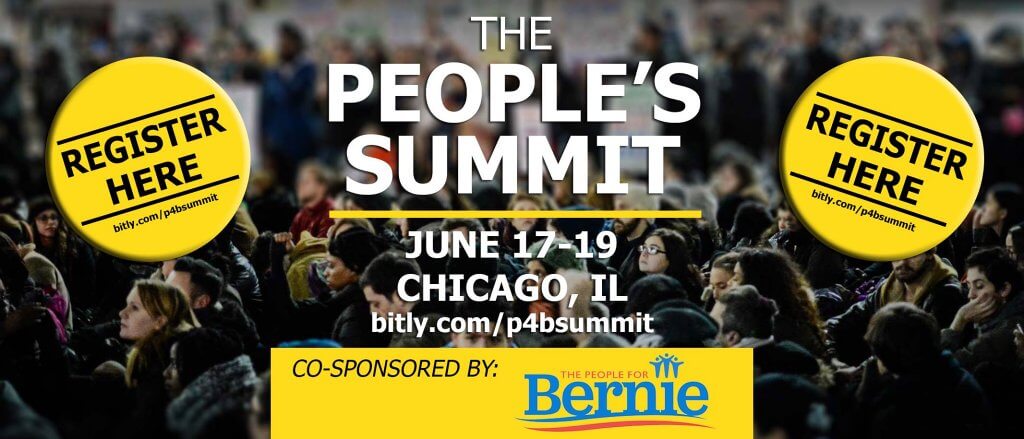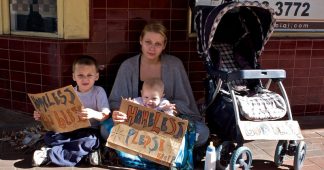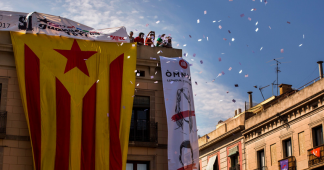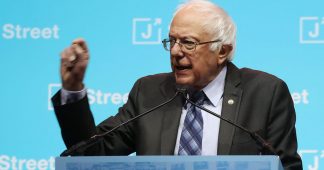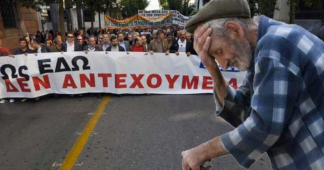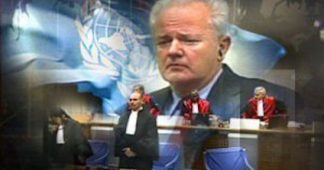Voting is not nearly enough. We need to become organizers.
By Ady Barkan
October 11, 2018
On September 30, 2016, Rachael and I celebrated one year of marriage and 11 years together by booking a hotel room in Los Angeles and going out for fancy Asian fusion. It was our first night away from our 4-month-old son, Carl. Rachael had a great new job as an English professor in Santa Barbara. My career as a progressive activist was going gangbusters. We had just bought a beautiful house and could see decades of happiness stretching out ahead of us. We were the luckiest people we knew.
The next morning, we had brunch with my oldest friend, a first-year medical resident. I mentioned to her that my left hand was feeling weak, and after playing with it for a few minutes, she told me I needed to see a neurologist.
The following Friday, at the ripe old age of 32, I was given my death sentence: The doctor told me I had ALS—amyotrophic lateral sclerosis—which would rapidly destroy all the connections between my brain and my muscles, leading to complete paralysis and death, likely in three to four years.
Three weeks later, our world was turned upside down a second time, when America elected a racist kleptocrat to the White House.
Like many people suddenly confronted with agonizing loss, I looked for answers in Buddhism. Pema Chödrön teaches us that when the ground disappears beneath your feet, the solution is not to flail around in a desperate attempt to find a handhold; it is to accept the law of gravity and find peace despite your velocity. Leave the mode of doing and enter the mode of being. Accept things as they are, rather than yearning for them to be otherwise.
Such radical acceptance is in tension with my identity as a movement builder. Activism is precisely about not accepting the tragedies of this world, but rather on insisting that we can reduce pain and prolong life. Social justice means creating a stable floor beneath our feet and then putting a safety net under that, to catch us if it suddenly vanishes: universal health insurance, affordable housing, unemployment benefits. Being part of a progressive political movement is about fighting back and building toward a better future. “Acceptance” is not part of our vocabulary.
The theologian Reinhold Niebuhr—whose most famous disciple, Dr. Martin Luther King Jr., would become the patron saint of American organizers—sought to resolve this tension in his Serenity Prayer: asking for the serenity to accept what cannot be changed, the courage to change what can be, and the wisdom to know the difference.
I have tried to internalize this worldview. I am no longer ruffled by quotidian nonsense, or even by the onset of new symptoms, such as when, earlier this month, I stopped being able to feed myself. I have come to accept that my ALS is progressing faster than average, that my body is wasting away quickly, and that what I have today will soon be gone. But there is one thing that still overwhelms me: when I imagine the future life of Rachael and Carl, who is now 2. The weekend hikes, the afternoons on the basketball court, the evenings playing backgammon and doing homework, the mornings eating breakfast and laughing about the latest absurdity emanating from Washington, DC—these are the moments that I picture spending with them in an alternate universe. When this mental exercise brings me to tears, as it always does, I try to be at peace in my sorrow. But it is not easy.
Because of the weakness in my lips and tongue and my shortness of breath, becoming emotional makes it difficult for me to utter the words you are reading. My fingers have lost nearly all of their strength, so typing these words is impossible. Instead, I sit with my scribe, Aiyana, in my room. She now understands me better than anyone else, but even she has begun to ask me to repeat myself. Even when it is quiet. Even when we are sitting side by side.
For 20 years, since I was a freshman in high school, I have been writing newspaper op-eds and giving timed speeches—first on the debate team and at thespian festivals, later at press conferences and in community-organizing meetings. But never before have I felt so acutely the constraining force of my word-count limit. I know intuitively how many arguments I can fit into 800 words. I know when my three minutes are up, even without looking at my watch. But now, facing my final months of speech, the questions that I was taught to ask in high school have taken on new meaning: What do I want to say? To whom? And how?
I spent six weeks this summer driving across the country in a wheelchair-accessible RV with a dozen comrades in pursuit of answers, not only to my personal queries but also to our national ones. What kind of a country will Carl’s generation inherit? And what will it take over these coming precious months to save our democracy? In 20 states and the District of Columbia, we met citizen-activists who are grappling with these very same questions, pouring their entire being into crafting tolerable answers. Some, like me, are dying and are throwing themselves into this November’s elections because they know it may be their last chance. But many others with longer life expectancies are doing the same thing. It turns out that our collective time horizon is the same: We peer into the future and hope that our children’s children will grow up in a more just and equitable society.
In nearly every congressional district, voters say that their top concern is health care. The high cost, the lack of access, the bureaucratic headaches—I heard these complaints in small towns, big cities, and suburbs from coast to coast. But these complaints are symptomatic of a much more profound problem: Our democracy is broken, and it seems that we have lost the ability to solve our collective challenges. Everywhere we went, we met voters who had been disabused of the notion that our elected representatives are pursuing the public good, disabused of the quaint idea that our government is of the people, by the people, and for the people.
And yet, throughout our travels, this cynicism was being overcome by a different emotion—hope. All around the country, we met people who can see beyond this dark moment into the bright light of another world. For the first time in many decades, our national politics are being shaped not only by fear and hatred, but also by our dreams for a better world. Each month, more organizers, activists, candidates, and elected officials are talking about reshaping American society in a radically humane way. This vision encompasses both negative and positive rights: freedom from unjust incarceration, racist policing, inhumane immigration enforcement, economic exploitation, sexual violence, and political disenfranchisement; and a set of public policies that gives us the freedom to thrive—debt-free education from pre-K through college, decent housing, the guarantee of a good job, clean energy, retirement security, and free and robust Medicare for all.
Focusing on the moment and immersing myself in the task at hand has been my salvation over the past two years. Peering into the future has been too dispiriting and too overwhelming. But there is so much to embrace in this very moment, so much work right here in front of us.
This was the message that I settled on somewhere between the cornfields of the Great Plains and the glistening waters of the Great Lakes: the notion that the cure to what ails American democracy is more American democracy; that our problems are created by people and that we can only solve them with people power; and that, as Rebecca Solnit teaches us, hope is not a lottery ticket that can deliver us out of despair, but a hammer for us to use in this national emergency—to break the glass, sound the alarm, and sprint into action.
What action? Voting is not nearly enough. This moment calls on us all to become organizers. To be heroes for our communities and future generations. To talk to our less political friends, neighbors, classmates, and co-workers, and to enlist them in this experiment we call American democracy. This is our Congress, our country, and our future for the making.
The past few weeks have borne witness to the potency of hopeful organizing. In the summer, the conventional wisdom in Washington held that Brett Kavanaugh was a sure bet to be confirmed to the Supreme Court. But in August, a handful of organizations began a campaign of civil disobedience to resist him, and in early September, as the Senate reconvened for what was supposed to be a smooth confirmation process, more than 200 brave women said no. They disrupted the hearings, focused the nation’s attention on the moral stakes of the nomination, and created space for bold Democratic senators to push Kavanaugh on his immoral ideology and dishonest testimony.
Meanwhile, over 123,000 American citizens pooled their small contributions into a $3.5 million war chest and joined activists in Maine to deliver a clear message to Senator Susan Collins: If you vote for Kavanaugh, it will cost you your job. Collins, Fox News, and Senator Ted Cruz of Texas complained that we were engaging in bribery. That is their ideology in a nutshell: Corporate donors can buy all the access and influence they want, but regular American citizens must remain silent. This response is as old as class hierarchy itself, because there is no more dangerous threat to the status quo than collective action by the masses.
In late September, Kavanaugh’s confirmation was thrown into doubt because Christine Blasey Ford testified that he had attempted to rape her in high school, and most Americans believed her. In an act of mass solidarity with Blasey Ford, thousands of survivors told their stories for the first time. The #MeToo movement has been building public consciousness for a year, and its legion of members were determined to prevent the Senate from repeating its embarrassing performance in 1991, when Anita Hill testified during the Clarence Thomas confirmation hearings. Hundreds of survivors and their allies boarded buses to DC; thousands more organized rallies and vigils in their hometowns. In Senate offices and elevators, on Facebook and around the dinner table, a mass movement of Americans insisted that we deserve so much more from our Supreme Court and our Congress.
Some of us even entertained the fantasy that we might be able to run out the clock until a new Congress convenes in January and possibly save this Supreme Court seat. One can hope. And then organize. And sometimes that struggle will pay off.
Sometimes, though, our struggle is not enough. ALS destroys my body, no matter how many medicines I take or exercises I do. Sometimes, oftentimes, white supremacy, violent misogyny, and rapacious capitalism rip apart our families and destroy lives, regardless of how well we organize. And sometimes, oftentimes, our stories are not powerful enough. Despite our best efforts, Brett Kavanaugh has been confirmed, and will do lasting damage to America and its people.
Yet it is in these moments of defeat that hopeful, collective struggle retains its greatest power. I can transcend my dying body by hitching my future to yours. We can transcend the darkness of this moment by joining the struggles of past and future freedom fighters. That is how, when we reach the end of our lives and look back on these heady moments, we will find peace in the knowledge that we did our best.
There is a seeming paradox embedded in the third part of Niebuhr’s prayer, because the wisdom to know the difference between what we can and cannot change can only be earned through struggle. Neuroscientists seek a cure for ALS because they do not accept its inevitability. Organizers rage against the machines of capitalism with that same determination. It is only by refusing to accept the complacency of previous generations that the impossible becomes reality. For me, Niebuhr’s prayer is most true if rearranged: Collective courage must come first, wisdom second, and serenity at the very end.
Published at https://www.thenation.com/article/im-dying-here-is-what-i-refuse-to-accept-with-serenity/
